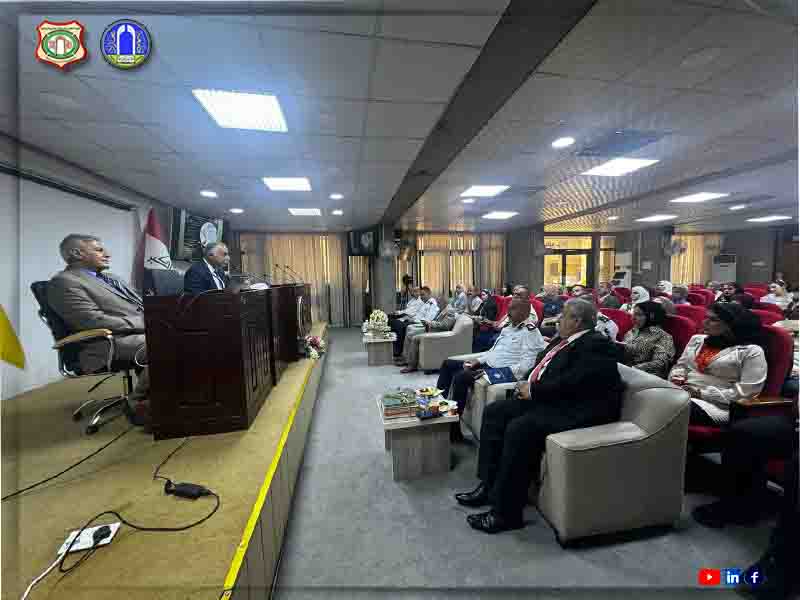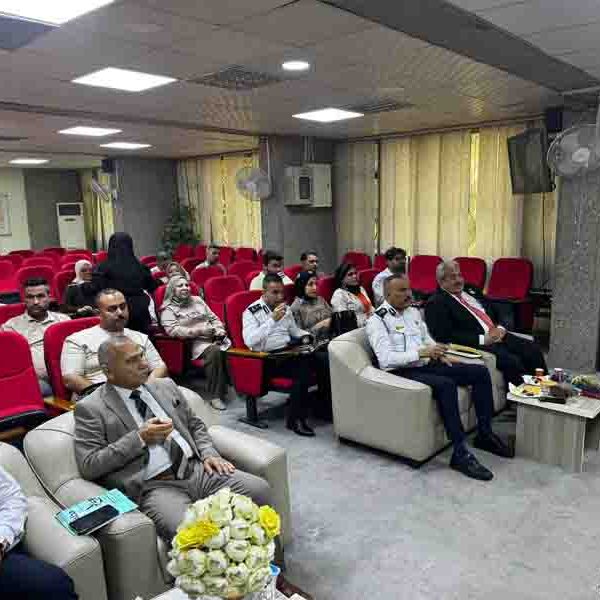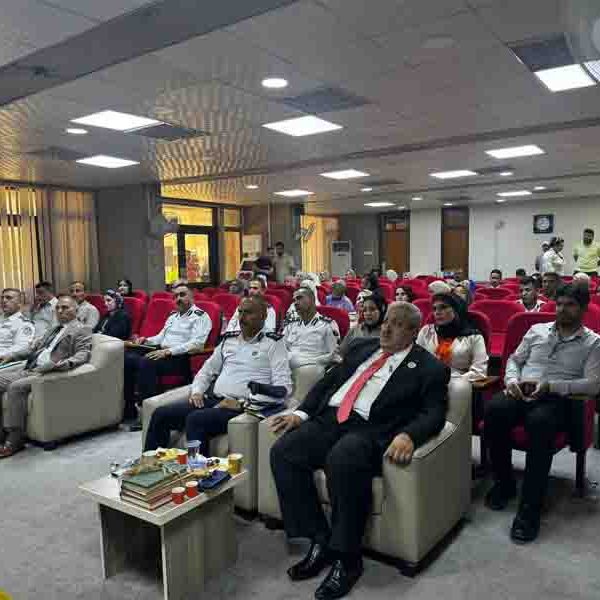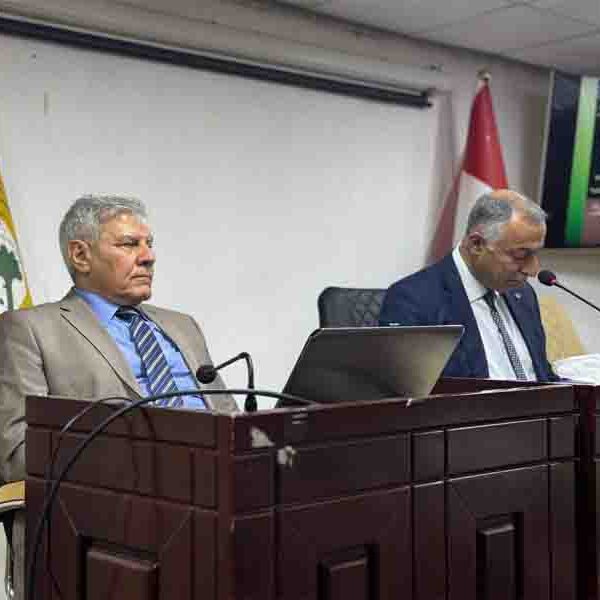The Center for Urban and Regional Planning for Postgraduate Studies at the University of Baghdad held a scientific workshop entitled “Planning Dimensions of Traffic Accident Risks, Iraq as a Model,” in which the lecturer from the Post-graduate Institute for Accounting and Financial Studies, Assistant Professor Dr. Mahmoud Ismail Muhammad, lectured in the presence of the Dean of the Center for Urban and Regional Planning, Professor Dr. Karim Hassan Alwan, and the Dean of the Post-graduate of Accounting and Financial Studies, Chartered Accountant, Assistant Professor Dr. Ali Muhammad Thajil Al-Mamouri, Professor Dr. Beda Sattar Lafta, Head of the Financial Studies Department at the Institute, and Miss Nabaa Jassim Mohammad. A number of directors and district officials in the Traffic Directorates next to Al-Karkh and Al-Rusafa participated in the scientific workshop, as well as guests, academics, and employees of the Planning Center, Urban and regional graduate studies.
The workshop aimed to study the importance of urban planning to reduce traffic accidents and their negative effects on societies according to international and local studies and questionnaires taken from Iraq as a study sample by presenting a number of accurate statistics, and adopting the planning approach that is based on scientific foundations taken methodologically and practically within the subject of urban transport planning. The workshop was attended by the Dean of the Center, highlighting the planning role before starting to establish projects, and taking into account the humanitarian and social aspects to provide the best services and achieve all concepts of sustainability from the beginning of the basic plans.
The workshop also included a number of studies that examined the causes of traffic accidents in Iraq with regard to vehicle drivers and their experiences in overcoming accidents and exercising caution, as well as the type of roads and their approaches and the extent of their harmony and tolerance for preparing cars, whether at peak hours or on external roads, provided that the population density of each region and its needs are studied. From public and private transportation.
The workshop concluded by highlighting the possibilities available to reduce these accidents by adopting a planning strategy with alternatives developed scientifically and then practically according to the digital outputs of the analytical stage, which relies on accurate and comprehensive diagnosis of data on the phenomenon of traffic accidents.



